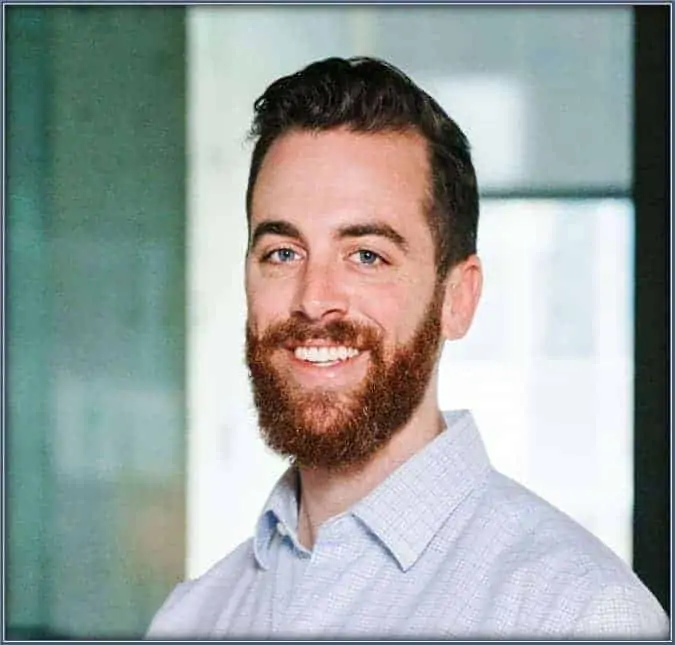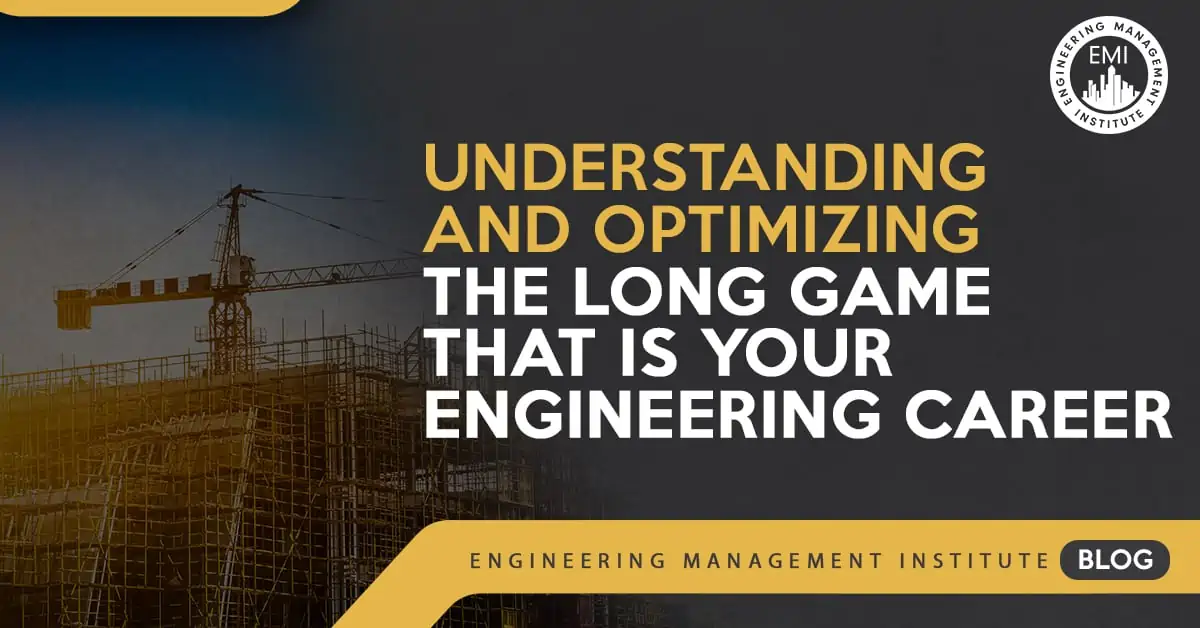This is a guest post by Jacob Valentien, PE

As I reflect and think about the various blog topics that I could write about for the Civil Engineering Collective, I wanted to start off by summarizing one of the biggest concepts that I see young engineers struggle with in their first few years after graduating college and starting their career. The issue is that your engineering career is quite the long game, and it has only truly started. Engineering school is step one and obtaining your professional engineering license should be the step where everything accelerates (and not slows down).
Establishing a challenging and rewarding engineering career is very important to me, and I hope to break down some foundational concepts so that you can set off on your own challenging and rewarding engineering career. I think the following four major components are most critical to take into consideration for your career development:
- Mindset
- Experience
- Continual learning
- Goal setting
You can find tons of content on each of these topics from all kinds of sources, both internally focused on the engineering field and externally. I think there is value in immersing yourself in these topics early and often to continually remind yourself of the value of each.
Challenging your engineering career
Mindset
- Your engineering career is just that — a career — and not just a job. According to Google, these words have clearly different definitions:
- Career: An occupation undertaken for a significant period of a person’s life and with opportunities for progress
- Job: A paid position of regular employment
- Coming out of school and having worked many different jobs, I thought I was ready to join an engineering firm and contribute quickly. It did not take long to be humbled by the breadth and extent of business, engineering, and management concepts that I was not educated in or ready to handle. This is not an occupation that you will master or learn to maneuver efficiently in a short amount of time — it takes time and experience.
- With that being said, you have to keep a positive outlook and understand that mistakes, confusion, and frustration can all be a part of the process but keeping your head up and continuing to show up with a positive mindset is the only way to continue trucking forward and grow as an engineer.
Experience
- The famous 10,000-hour concept made popular by Malcom Gladwell in his book “Outliers” best summarizes what it takes to ramp up your engineering career to a point where you can get a good grasp on what it takes to excel in this industry. In my opinion, the faster that you can reach this milestone, the better.
- In general, a standard 40-hour work week will lead you to hitting this threshold in 250 work weeks (or just under five years). In Texas, there is requirement to work under a professional engineer for at least four years before you can qualify to become a professional engineer. I think it is prudent for a young engineer to have reached 10,000 quality hours of engineering prior to that four-year threshold. The adjective “quality” is critical in your development. Just showing up to work and going through the motions does not define “quality” hours.
- In my opinion, maintaining focus to generate quality work, asking detailed questions, and accepting challenging projects and opportunities are definitions of quality work.
- Also by putting in extra time and conducting quality work, you will establish a positive feedback loop for yourself. Your manager(s) will take notice and provide you with more unique, challenging, and exciting projects or opportunities. They will be more likely to want you on their teams and/or projects if they know that you are willing and capable of doing quality work.
- This might lead to you being overextended and/or working more overtime than your peers but understand that this will only help you get to that coveted 10,000-hour mark faster and through more diverse and challenging projects.
- And finally by experiencing more diverse and challenging projects, you will have established a more extensive resume and be better prepared for your future career path.
Continual Learning
- Engineering school is a great foundation to getting your career started and allowing you to obtain your first engineering job; although stopping your engineering learning after school will not take you where you may want to go. Also, it is likely that your engineering school did not provide you with a wealth of business knowledge or, more importantly, the “soft” skills in working with people.
- For most of you, your engineering firm will provide you very valuable resources to understand how to take your education and apply it to real-world practice and the engineering business. It is important to soak up any and all available training or learning opportunities offered by your firm, even if it is not something that you can immediately foresee being beneficial to your day-to-day tasks. You may be surprised to learn how interlinked many of the civil engineering principles can be across the various fields.
- However, it is imperative to state that if you only learn things from your firm and from people you work with internal to your firm, then you are selling your growth and training short. There is an immense library of information available through so many sources that you should be tapping into to expand your training and mindset early in your engineering career, which will allow you to bring valuable insights to your projects and firm as well as separate yourself from your peers more quickly.
- The fact that you are reading this article proves that you are on the right track. Read technical magazines, articles on leadership, local business journal reports, attend professional organization meetings, sign up for online courses, etc. You get the point: Don’t settle for just learning how to do your engineering job during standard business hours; immerse yourself in the concept of continual learning and make it a habit.
Goal Setting
- Since we already talked about mindset, experience, and continual learning, the last major component for your career development is the art and practice of regular goal setting and evaluation. The concept and importance of setting SMART (specific, measurable, attainable, relevant, and timely) goals cannot be overstated or overvalued. When I look back and evaluate what has worked best for me, it is the combination of both short-term and long-term goals.
- I like to think of short-term goals as tasks or objectives that can be accomplished anywhere from one month to one quarter. Long-term goals should be thought of as anything from one to three years. I think anything that might take longer than three years is nice and valuable to think about and plan for but needs to be broken down into smaller goals that fit more immediate time frames.
- When setting goals, make sure that you apply some sort of quantitative measure so that you can revisit and evaluate your progression toward the goal.
- Feel free to share your goals with a peer, your manager, and a mentor. The more people that you can have involved and invested in your growth, the more people you will be hesitant to let down and the more people that will continue to encourage you to push ahead.
In summary, if you can keep these concepts in mind early and often in your engineering career, you will learn to understand that your career is truly a long game to play and that chipping away at what you don’t know is the only way to maintain continual progression. If you can keep all of that in mind, continue to involve yourself with ever-expanding responsibilities and challenges, immerse yourself in various learning opportunities, and regularly set and assess goals, you will grow your career exponentially in the direction and path that works best for you.
About the Author Jacob W. Valentien, PE

I hope you enjoyed this week’s post by guest author Jacob W. Valentien, PE. If you’re interested in your firm possibly joining the Civil Engineering Collective, please contact us here or call us at 800-920-4007.
I hope you’ll join us.
Anthony Fasano, P.E.
Engineering Management Institute
Author of Engineer Your Own Success


